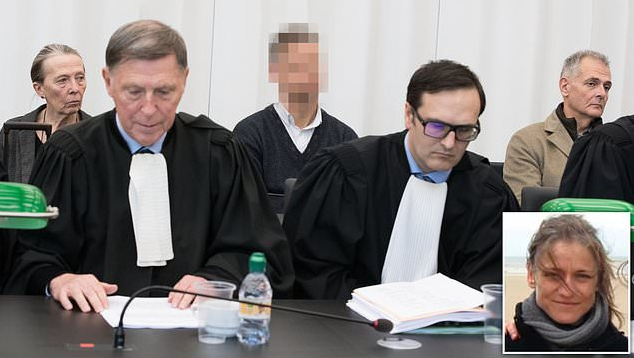A court in Belgium has acquitted three doctors accused of unlawfully poisoning a woman whose life they helped to end.
Tine Nys, 38, died surrounded by her family on 27 April 2010.
In the landmark case, her sisters and prosecutors had argued she wanted to die because of a failed relationship – not an “incurable disorder” as required by Belgium’s euthanasia law.
But after hours of deliberations the jury in Ghent cleared the doctors, prompting applause in the courtroom.
Those acquitted early on Friday were Joris Van Hove, the doctor who administered the lethal injection, Nys’s former doctor Frank D. and psychiatrist Lieve Thienpont.
Euthanasia and assisted suicide were made legal under strict conditions in Belgium in 2002.
Since then doctors have faced legal proceedings before, but none of the cases had reached a courtroom until now.
What did the court rule?
The three doctors were cleared by the 12-member jury after more than eight hours of deliberation.
The doctor was acquitted because he was not aware that euthanasia would be carried out on the day.
“Of course I’m happy, these have been difficult years for everyone and nobody has really won in this case. I’ll sleep well tonight,” Mr Van Hove was quoted as saying by local media.
Meanwhile, the psychiatrist said she met all the conditions required of her.
During the trial, defence lawyers complained their clients were being treated almost as murderers, even though they acted in good faith.
What about Tine Nys’ family?
The 38 year old had suffered a childhood of severe psychiatric problems and had tried to take her life when she was younger.
But her sisters, Lotte and Sophie, were adamant during the trial that she was not incurably ill, as Belgian law requires, but suffering from the stress of a broken relationship. She had not had psychiatric treatment for 15 years.
The sisters also complained about what they described as the botched manner in which the doctor gave Tine a lethal injection.
“He likened her death to that of a pet that is in pain and is having a shot,” they told Flemish TV in 2016.
“He also asked our father to hold the needle in her arm because he had forgotten to bring plasters. When she had died, he asked our parents if they wanted to listen through the stethoscope to check her heart had actually stopped beating.”
A patient must be legally competent and conscious at the time of seeking to end their life. The request must be voluntary, well considered and repeated.
The disease must cause constant and unbearable physical or mental suffering, resulting from “a serious and incurable disorder caused by illness or accident”, according to Belgium’s public health service.
Where a patient is not expected to die soon, the doctor must consult a second physician and allow at least a month from the request before euthanasia takes place. Doctors are free to perform euthanasia if the conditions are met. Or they can refuse if they do not wish to.
Last October, renowned 40-year-old Belgian Paralympian Marieke Vervoort ended her life 11 years after signing the necessary papers. She had an incurable degenerative muscle disease that caused her constant pain, seizures and paralysis in her legs. She won gold and silver at the
London 2012 Paralympics.
Tine Nys’s sisters have emphasised they consider euthanasia necessary in some cases but want the law made clearer.



